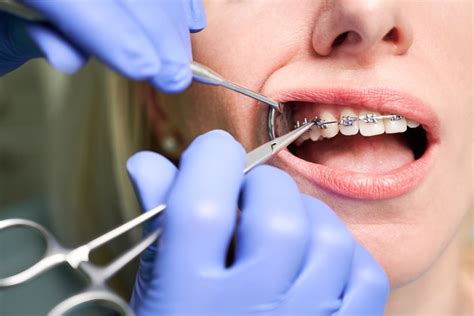Braces Rubbing? Ditch the Wax! Alternatives to Orthodontic Wax for Irritation Relief
Dealing with braces can be a mixed bag. The excitement of a straighter smile often clashes with the reality of persistent irritation. While orthodontic wax is a common solution for the rubbing and chafing caused by brackets and wires, it's not the only option, and for many, it's not even the best one. This article explores effective alternatives to orthodontic wax, helping you find the relief you need without the sticky, messy, and often ineffective wax.
Why Ditch the Wax?
Orthodontic wax has been a staple in orthodontic treatment for years, but its drawbacks are numerous:
- Messy: It's incredibly sticky, making it difficult to apply neatly and often leaving residue on your teeth and fingers.
- Ineffective: It can easily wear off, requiring frequent reapplication throughout the day. This constant reapplication becomes tedious and inconvenient.
- Tasteless: The taste of the wax can be unpleasant, especially after a while.
- Not a Long-Term Solution: Wax only masks the problem; it doesn't address the underlying cause of the irritation.
What Causes Braces to Rub?
Before diving into solutions, it's crucial to understand why your braces are rubbing in the first place. Several factors contribute to this common problem:
- New Braces/Adjustments: Immediately after getting braces or having them adjusted, the wires and brackets can feel especially sharp and irritating.
- Loose Wire or Bracket: A wire that has become loose or a bracket that is slightly protruding can cause significant discomfort.
- Food Particles: Food debris trapped between the braces and gums can exacerbate the irritation.
- Certain Foods: Hard or crunchy foods can sometimes bend or loosen brackets and wires.
Effective Alternatives to Orthodontic Wax:
Now, let's explore some superior alternatives that provide longer-lasting relief and avoid the downsides of wax:
1. Orthodontic Silicone Gel
Orthodontic silicone gels are a fantastic alternative. They form a soft, protective layer over irritated areas, providing cushioning and lasting relief. Unlike wax, they're easy to apply and don't leave a sticky residue. They're also generally tasteless.
2. Dental Wax (Not Orthodontic Wax!)
While we're advocating against orthodontic wax, dental wax, often used for temporary fillings, can offer a surprisingly effective alternative. It’s often softer and more pliable than orthodontic wax, and it doesn't have the same sticky texture.
3. Soft Foods and Careful Chewing
Modifying your diet can help minimize irritation. Focus on soft foods that won’t put additional pressure on your braces. Chew slowly and deliberately on the opposite side of your mouth to avoid further irritation of the affected area.
4. Saltwater Rinse
A simple saltwater rinse can work wonders in soothing irritated gums. The salt has antiseptic properties and can help reduce inflammation.
5. Over-the-Counter Pain Relief
For severe pain, over-the-counter pain relievers like ibuprofen or acetaminophen can provide temporary relief. Always follow the recommended dosage instructions.
When to See Your Orthodontist
While these alternatives can alleviate discomfort, it's crucial to schedule an appointment with your orthodontist if:
- The pain is severe and persistent.
- You notice a loose wire or bracket.
- You're experiencing excessive bleeding.
- The irritation doesn't improve after a few days.
Your orthodontist can address the underlying issue, preventing further discomfort and ensuring your treatment progresses smoothly.
Frequently Asked Questions (FAQs)
How long does it take for braces irritation to subside?
The duration varies depending on the cause and severity of the irritation. Minor irritations often subside within a few days, but more severe issues may require intervention from your orthodontist.
Can I use Vaseline or lip balm instead of orthodontic wax?
While these products might offer some temporary relief, they are not designed for this purpose and are not recommended. They can attract bacteria and may not provide sufficient protection.
What are the long-term effects of braces irritation?
If left untreated, persistent irritation can lead to gum damage, infection, and potentially delay your treatment.
By understanding the causes of braces rubbing and exploring these effective alternatives, you can navigate orthodontic treatment with significantly less discomfort and frustration. Remember, communication with your orthodontist is key to a successful and comfortable experience.

